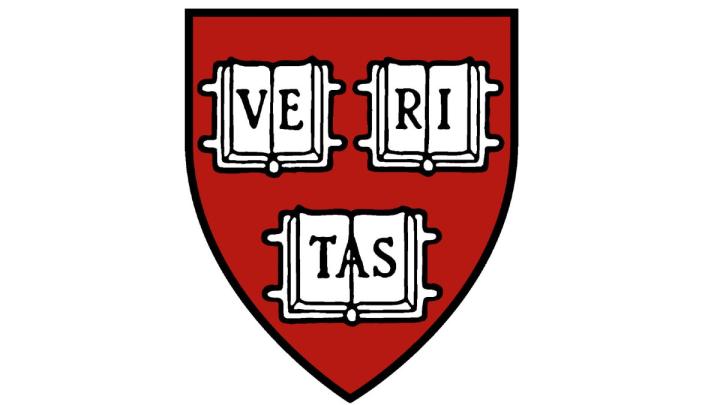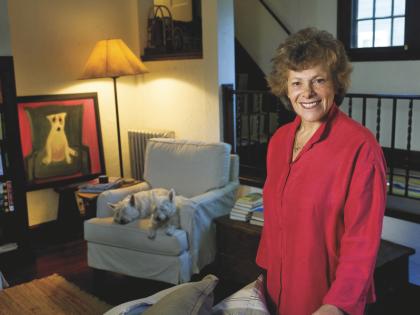A Harvard committee has today recommended banning all students from joining any final club or other unrecognized social organization. The policy, modeled on that of peer institutions such as Williams and Bowdoin, would take effect beginning with students entering in the fall of 2018, and would lead to the abolition of such organizations at Harvard by 2022.
UPDATED 4:45 p.m., Wednesday, July 12, to include analysis of the report.
Explaining its reasoning, the committee of faculty, administrators, and students cited “Harvard College’s commitment to non-discrimination, inclusion, and a healthy social climate…,” and said that even though the number of students involved in such organizations is small, their effects “permeate the fabric of campus culture.” The committee said that in reaching its decision, it reviewed “numerous documents, including the Report of the Implementation Committee for the Policy on Membership in Single Gender Social Organizations, College reports, College Visiting Committee reports, student data, policies of peer institutions, and op-eds and relevant news coverage.”
Many alumni, the report stated, had written to the committee saying that the clubs were “hardly noticeable to them,” but student surveys show that “a staggering number of recent students find the USGSOs [unrecognized single-gender social organizations] far from innocuous.” Indeed, the committee’s charge from the dean states that, “as reflected in survey comments, these organizations directly and negatively influence the undergraduate experience for many students who are not themselves members of these organizations. The discriminatory practices of these organizations undermine our educational mission and the principles espoused by this Faculty and distance their members from their College experience.”
The report also noted that some organizations have “responded with an increased zest for exclusion and gender discrimination,” perhaps referring to the recent decision by Fox Club alumni to revoke the provisional membership granted to nine women by current male undergraduate members. “This leads the Committee to believe that, without strong decisive action, little positive change is likely to occur.”
The committee characterized the proliferation of USGSOs in recent years as a response to final clubs, rather than to any institutional shortcomings in support of student social life, describing the growth of such organizations as often “well-intentioned antidotes to the effects of the final clubs.” Regardless of the reasons for their increasing popularity, the committee found that such groups “are also of concern in their participation in and perpetuation of social structures that discriminate based on gender, race, class, and sexual orientation. In order to move beyond the gendered and exclusive club system that has persisted—and even expanded—over time, a new paradigm is needed, one that is rooted in an appreciation of diversity, commitment to inclusivity, and positive contributions to the social experience for all students.”
Furthermore, the report found that even though some USGSOs had already become gender-neutral, other practices of these organizations “go against the educational mission and principles espoused by Harvard University.”
A majority of the committee’s members therefore favored an outright ban on membership in such groups, modeled on restrictions in force at peers such as Amherst, Bowdoin, Middlebury, and Williams. The Williams policy, for example, states that “Williams students may neither join nor participate in fraternities during their time at the College. This policy was first adopted in 1962, and it is strongly supported by the College community. The College will take disciplinary action against students who are found to be participating in such organizations. Penalties may include suspension or expulsion from the College.”
The Harvard policy, as proposed, reads:
Harvard students may neither join nor participate in final clubs, fraternities or sororities, or other similar private, exclusionary social organizations that are exclusively or predominantly made up of Harvard students, whether they have any local or national affiliation, during their time in the College. The College will take disciplinary action against students who are found to be participating in such organizations. Violations will be adjudicated by the Administrative Board.
Surprisingly, as noted in a dissenting opinion written by Putnam professor of organismic and evolutionary biology David Haig that appears in the report as Appendix 4 (see sidebar for the full report), the policy would apply even to unrecognized single-gender social organizations that have adopted gender-neutral policies with respect to membership, including the Hasty Pudding Club, the Spee Club, the traditionally male Oak Club, and traditionally female clubs the Sab Club and The Seneca. It would also apply to the following gender-exclusive clubs:
- the female final clubs La Vie Club Inc., The Bee Club, The IC Club, and The Pleiades Society;
- the male final clubs the A.D. Club, the Delphic Club, the Fox Club, the Phoenix S.K. Club, The Fly Club, The Owl Club, and the Porcellian Club; and
- all the unrecognized fraternities and sororities, including Alpha Epsilon Pi, Delta Kappa Epsilon, Kappa Sigma, Sigma Alpha Epsilon, Sigma Chi, Alpha Phi, Delta Gamma Kappa, Alpha Theta- Zeta Xi Chapter, and Kappa Kappa Gamma.
Haig framed the past academic year’s fiercely debated sanctions policies—which as of now apply to freshmen matriculating this August—as “a conflict between competing goods: on the one hand, respect for student autonomy and freedom of association; on the other hand, non-discrimination and inclusivity. The report strongly favors the latter over the former goods,” he wrote in his dissent. “I continue to favor a balance more on the side of student autonomy because I am unconvinced that the policy, when implemented, will solve the latter problems.” Haig also took issue with the lack of good data on the effects of these student social organizations, and the fact that faculty opinion is unknown, because “the sanctions policy has never come to the faculty for a vote.” (In noting that a 2016 survey of students had registered 60 percent of respondents in favor of repealing that policy, and 30 percent in favor of retaining it, he said, “There is a disconnect between these numbers on student opinion and the general tone of this committee’s report which emphasizes deep unhappiness among students with the social environment created by the clubs….).”
The committee explains in its majority report that its main reservation about the stated goal of the previous policy, set to take effect this fall, “was whether the focus on ending gender segregation and discrimination is too narrow. While the current policy endeavors to address an important element of discrimination in social organizations, the Committee also has concerns about broader issues in these organizations related to exclusion and conduct” that were not addressed in the policy.
Noting, for example, that some USGSOs have already taken steps to admit members of both genders, the report went on to say that “even if all of these organizations adopted gender-neutral membership in a timely fashion, there would remain a myriad of practices of these organizations that go against the educational mission and principles espoused by Harvard University. The appeal to ‘non-discrimination’ is likely to remain inadequate to address the complexities of the socially distorting and pernicious effects of the clubs that exclude while also dominating the social scene at Harvard.” As a result, a complete ban on such organizations was recommended.
The committee was appointed in early March by the dean of the Faculty of Arts and Sciences, Michael D. Smith, and includes dean of Harvard College Rakesh Khurana as co-chair. (Khurana’s earlier recommendations led to the existing policy, and he has executed the recommendations of a prior “implementation committee.”) Smith charged the group with:
- reviewing existing policy, reports, and data;
- considering “whether there are other means of achieving our stated goals, including and especially that of fully advancing the non-discrimination objectives reflected in the current policy, and to evaluate whether any would be more effective than our current policy”; and
- proposing, “should more effective means be identified, changes or expansions to the current policy or a new approach.”
If the newly recommended policy is adopted, it would do away with the existing controversial regime of sanctions that has been the subject of faculty debate since last fall.
Perhaps the most surprising aspect of the report is that it seems to make clear that the Faculty of Arts and Sciences will not be given an opportunity to vote on any of the committee’s recommendations. Instead, the report invites faculty feedback through a website, email, or during “open faculty discussions” that will take place at the beginning of the academic year. Such feedback, the report says, “will be taken into account” when the recommendation is presented in the fall to President Faust, who “will make the final decision.”








